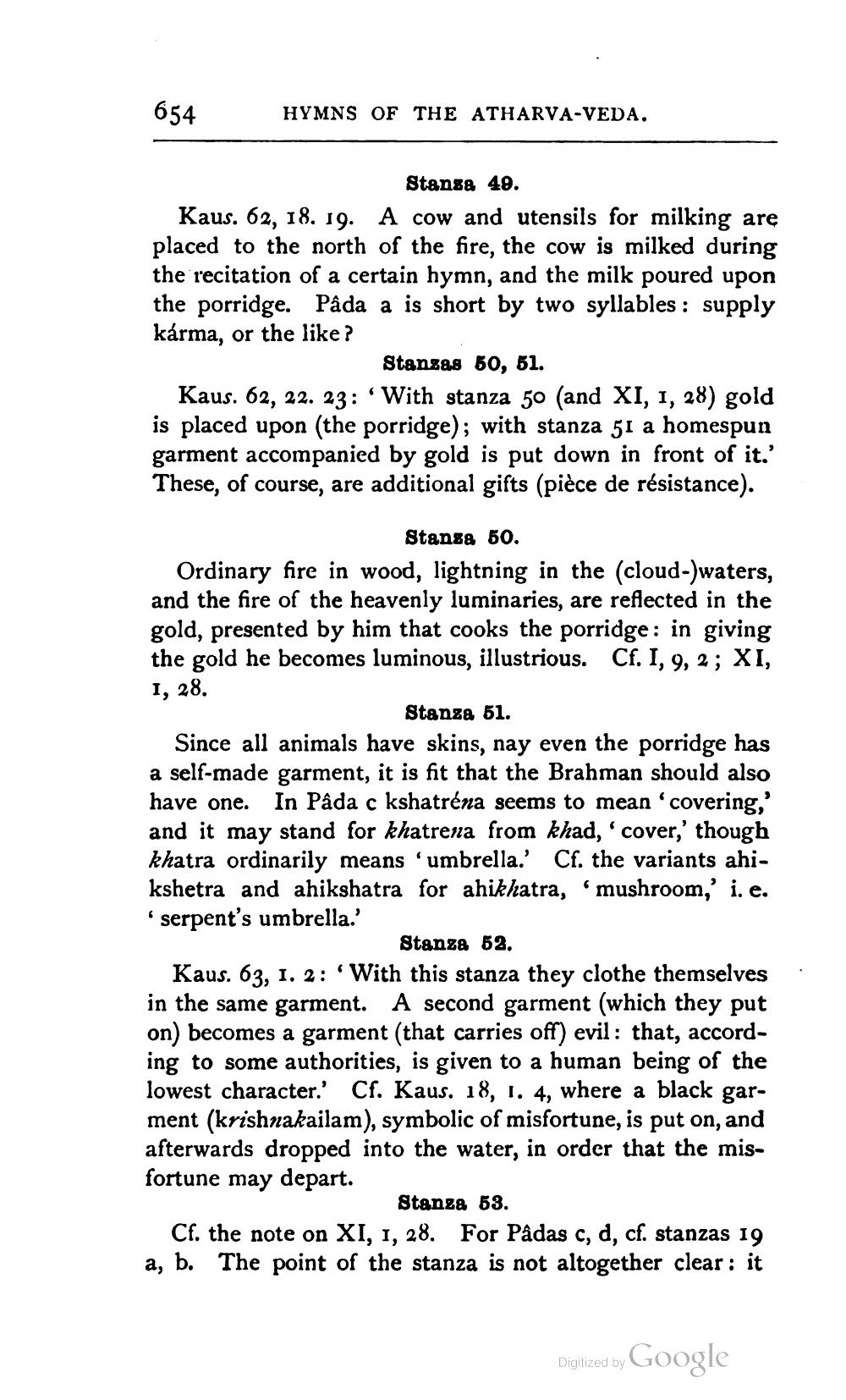________________
654
HYMNS OF THE ATHARVA-VEDA.
Stanza 49.
Kaus. 62, 18. 19. A cow and utensils for milking are placed to the north of the fire, the cow is milked during the recitation of a certain hymn, and the milk poured upon the porridge. Pâda a is short by two syllables: supply kárma, or the like?
Stanzas 50, 51.
Kaus. 62, 22. 23: 'With stanza 50 (and XI, 1, 28) gold is placed upon (the porridge); with stanza 51 a homespun garment accompanied by gold is put down in front of it.' These, of course, are additional gifts (pièce de résistance).
Stanza 50.
Ordinary fire in wood, lightning in the (cloud-)waters, and the fire of the heavenly luminaries, are reflected in the gold, presented by him that cooks the porridge: in giving the gold he becomes luminous, illustrious. Cf. I, 9, 2; XI, I, 28.
Stanza 51.
Since all animals have skins, nay even the porridge has a self-made garment, it is fit that the Brahman should also have one. In Pâda c kshatréna seems to mean 'covering,' and it may stand for khatrena from khad, 'cover,' though khatra ordinarily means 'umbrella.' Cf. the variants ahikshetra and ahikshatra for ahikhatra, mushroom,' i. e. 'serpent's umbrella.'
"
Stanza 52.
Kaus. 63, 1. 2: With this stanza they clothe themselves in the same garment. A second garment (which they put on) becomes a garment (that carries off) evil: that, according to some authorities, is given to a human being of the lowest character.' Cf. Kaus. 18, 1. 4, where a black garment (krishnakailam), symbolic of misfortune, is put on, and afterwards dropped into the water, in order that the misfortune may depart.
Stanza 53.
Cf. the note on XI, 1, 28. For Pâdas c, d, cf. stanzas 19
a,
b. The point of the stanza is not altogether clear: it
Digitized by Google




